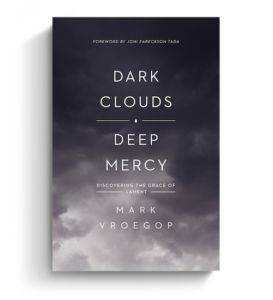One of my favorite memories as a boy was singing with our church family on Christmas Eve. As the service would near its conclusion, the deacons would distribute candles while the lights grew dark. As we sang our final hymn, the room would flood with candlelight as voices announced the message of Christmas, “Joy to the world, the Lord is come, let earth receive her king.” I felt a foot taller while singing with full voice among my friends and neighbors thinking about the truth and mystery of the incarnation.
The song that I sang as a boy has now been sung for more than 300 years as a beloved Christmas carol. “Joy to the World” was written by Isaac Watts (1674–1748), who is heralded as the “father of English hymnody.” While the hymn is often featured during the Christmas season, it was originally written to be sung year-round as a metrical version of Psalm 98:4: “Make a joyful noise to the LORD, all the earth.” From the first time this hymn was published in 1709, to the pews of our churches today, its powerful call to “repeat the sounding joy” continues.
The joyful theme we hear in this hymn is a two-fold: it’s a joy that looks back on the incarnation and one that also looks forward to the second coming of Christ.
Joy Looking Back
Isaac Watts understood all of Scripture points to Jesus Christ (Luke 24:44), so when it comes to his version of Psalm 98, he wanted to “make David sing like a Christian” by showing how Christ is the fulfillment of the passage. One of the themes we see in verses one and two explores nuances of the story of the birth of Christ. In the line “let every heart prepare him room,” we hear an echo of the innkeeper who had no room for the mother of Christ while labor was nearing (Luke 2:7). We rightly sing this lyric to our own hearts and sing it to others as an invitation to prepare room in each of us for the good news of the Savior’s birth.
The second verse reminds us that the praise of God must be in our hearts and on our lips. We’re to employ our songs of the Savior and his rule and reign. Luke records four specific songs that provide a unique contribution to the songs of the savior’s birth. Mary magnifies and rejoices in the mercy of God (Luke 1:46–55). Zechariah sings a song of prophecy that Jesus would fulfill God’s promise (Luke 1:68–79). The angels “sing” the pronouncement of the coming of Christ (Luke 2:14). And Simeon sings a prayer confessing he can depart in peace now that his eyes have seen the coming of the Christ (Luke 2:29–32).
Each of these accounts shows the resounding joy of singing the gospel of Christ.
Joy Looking Forward
The third verse of this text is often passed over because of its imagery of the curse. But without the presence of the curse (Gen. 3:16–19), the promise of deliverance loses its power (Gen. 3:15). These lines rightly point us to the day when God’s blessing (Gen. 3:17) flows as far the curse is found. We rejoice looking back on the God’s faithfulness, and we also rejoice looking forward to what God has promised in the future. We sing between what is and what will be, the already and the not-yet of our faith.
With this glorious vision, we see all the earth is called to make a joyful noise of praise to God. While the sting of sin is great, there is a greater hope: Jesus Christ, who rules the world with truth and grace. This grace causes hearts dead in sin to come alive in Christ (Eph. 2:8–9). The final two lines of our hymn don’t tie up our story neatly, but call us to marvel in “the glories of his righteousness, and wonders of his love.”
Let’s be a people who love and sing and wonder with this kind of unshakable joy (Phil. 4:4)! We rejoice in Christ by looking back and remembering his great faithfulness and love. We rejoice by looking forward to his coming again where on the shores of forever there is an even greater joy to come.
In a season of sorrow? This FREE eBook will guide you in biblical lament
 Lament is how we bring our sorrow to God—but it is a neglected dimension of the Christian life for many Christians today. We need to recover the practice of honest spiritual struggle that gives us permission to vocalize our pain and wrestle with our sorrow.
Lament is how we bring our sorrow to God—but it is a neglected dimension of the Christian life for many Christians today. We need to recover the practice of honest spiritual struggle that gives us permission to vocalize our pain and wrestle with our sorrow.
In Dark Clouds, Deep Mercy, pastor and TGC Council member Mark Vroegop explores how the Bible—through the psalms of lament and the book of Lamentations—gives voice to our pain. He invites readers to grieve, struggle, and tap into the rich reservoir of grace and mercy God offers in the darkest moments of our lives.
Click on the link below to get instant access to your FREE Dark Clouds, Deep Mercy eBook now!








































